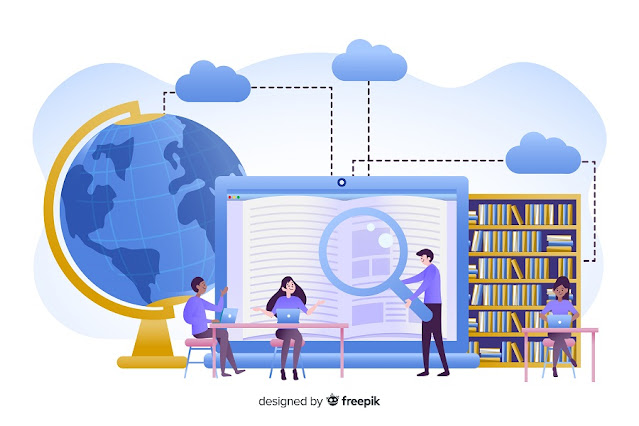In every school, college, and university, we have libraries to support the teaching and learning practices of the teachers and students respectively. Managing all the library tasks traditionally becomes hectic for the library incharges. By using a library management system, the major tasks can be automated and performed smoothly. Some of the major library tasks are:
- Ordering
books, novels, and other reading resources from time to time.
- Keeping
a track of library resources
- Issuing
reading material to the students and other users.
- Advising
the books to the teachers to enhance the teaching practices.
- Contacting
students for the return of the books.
- Maintaining
discipline and decorum in the library.
To manage all these tasks, only conventional methods are not
sufficient. Therefore all educational institutions must opt for a library
management system. There are several vendors available in the market, therefore
admins should research well and make the right choice. Let us discuss the
benefits of using this system in detail.
Key benefits of using a library management system
1.Easy book search
Going to the library and searching for books, or guides that
students need becomes difficult. Many times, students are not able to find out
easily. A lot of time and effort is consumed in roaming from one corner of the
library to the other. To overcome all these problems, using a library
management system is quite beneficial. The software allows the users to search
for the books and find out in which row or section the books are placed. In
this way, students can also get the books issued quickly. The whole book search
and issue process becomes hassle-free.
2. Productivity
The librarian has multiple tasks to perform every day.
Keeping a record of the books, issuing books for students, accepting returns,
and maintaining discipline and decorum, all these duties need to be taken care
of. Doing every task manually becomes quite hectic and time-consuming. Also,
keeping a manual record of the data can lead to more errors and omissions. On
the other hand, the educational institutes that use a library management system, have more productive and efficient teachers. As all the major
tasks can be completed with simple clicks and taps on the system, librarians
become productive. The saved time can be invested in doing other essential
tasks.
3. Better management of books
Going to the library, and checking the sections to find out the
book one needs to get time-consuming and tiresome. On the other hand, library management software provides a list of all the books available in the library.
Students and teachers can easily search for the book they want by entering the
name, author, title, or other such details. Not only this, one can easily find
in which column or section the book is placed. With the help of this
technology, the library in charges can manage the huge set of books, novels,
comics, guides, research papers, dictionaries, magazines, and more
systematically.
4. Reduced errors and mistakes
In issuing books, updating library cards and manual record keeping
of books can lead to errors and mistakes. Identifying the errors, and
re-correcting them leads to more wastage of time. However, by using a library
management system, there is no space left for mistakes and confusion. All the
tasks are performed by the system automatically. This helps stakeholders to
perform the tasks correctly within no time. Better communication, time
management skills, and organization are some other benefits of using this
software in educational institutions.
5. Time-saving
The library management system helps in automating the activities
like book issues, book search, catalog management, and more. Since all these
major tasks get automated, it saves a lot of time for teachers, students,
librarians, and other users. Moreover, standing in long queues to get the books
issued and entries done in the library cards is no longer needed. This makes
the whole process time-saving and hassle-free respectively.
6. Cost effective
Along with the above-mentioned points, a library management system
is quite cost-effective. With all the library-related tasks getting automated,
the stationary costs, printing library cards, and maintaining registers for
entries are no longer needed. A lot of time, labor, and expenses are saved. To
economize the school expenses, the authorities and admins should select the
best library management system and other such technical tools.
Conclusion
A library management system is very important to make the task
easier and more manageable for the library incharge. By reading the
above-mentioned information, we can make out how this technology helps the
stakeholders of educational institutes. Maintaining digital records of books,
seamless cooperation among the users and effective library management can be
achieved this way.









.jpg)


0 Comments